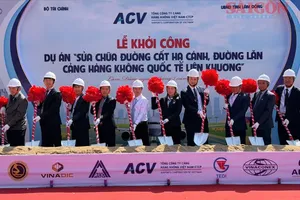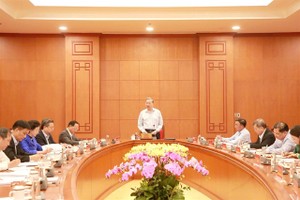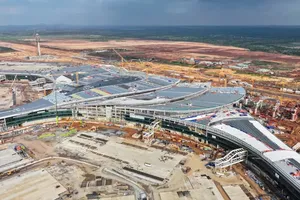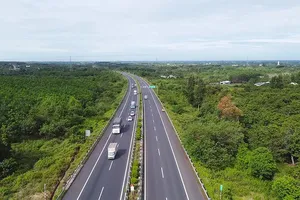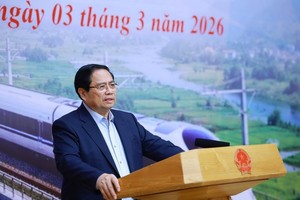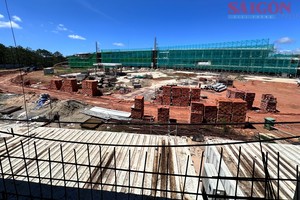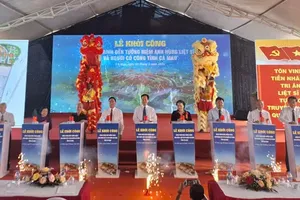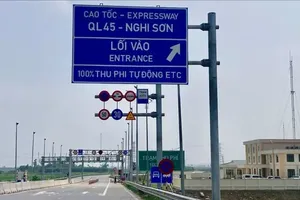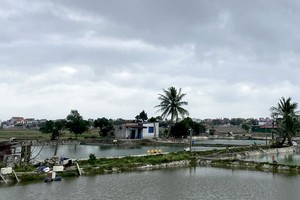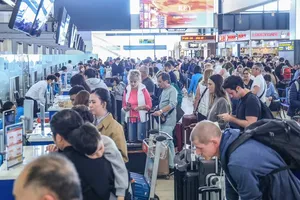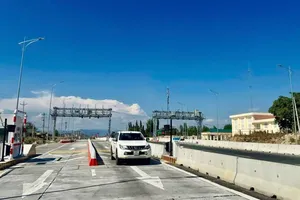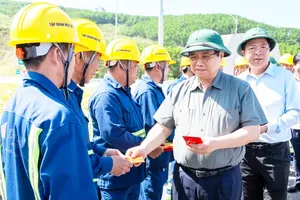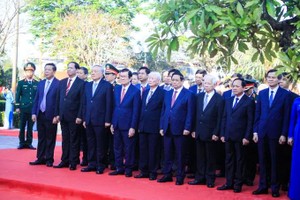Despite no precise figure, the Ministry of Natural Resources and Environment reports that there are hundreds of thousands of waste recycling facilities across the country. In Ho Chi Minh City, before the Covid-19 pandemic, statistics from the Department of Natural Resources and Environment indicated the presence of several thousand recycling facilities, primarily concentrated in districts 6, 8, Tan Binh, Tan Phu, and Binh Chanh.
While there is a considerable number of these facilities, the operational standards of most are outdated, with small and super-small scales. Surprisingly, over 90 percent of waste recycling facilities lack specialized environmental personnel, wastewater treatment systems, and air pollution control systems.
Worryingly, numerous facilities are located deep within residential areas, and their production processes have led to significant pollution for the local residents. The SGGP newspaper shed light on this issue in an article at the end of August 2023. After the SGGP’s article, the city has urged the Department of Natural Resources and Environment, as well as the districts, to devise plans for relocating these facilities away from residential areas.
According to the Ministry of Natural Resources and Environment, most waste recycling facilities in various provinces and cities rely heavily on manual processes and lack proper wastewater and air pollution treatment systems. Workers operate without essential protective gear, and the input materials often consist of inadequately cleaned scrap, posing a serious risk of pollution during recycling process.
At present, the three types of waste that are most commonly recycled are paper, metal, and plastic. Given this scenario, numerous environmental experts contend that to efficiently implement waste sorting at the source and utilize these resources effectively for environmental protection, it is imperative to institute policies that incentivize investment in constructing modern, environmentally friendly recycling facilities.
According to Dr. Nguyen Trung Viet, former Head of the Solid Waste Management Division at the Department of Natural Resources and Environment of Ho Chi Minh City and Member of the Advisory Council for Adjustment of Master Plan of HCMC, to accelerate the construction of modern waste recycling plants and somewhat keep pace with the imminent enforcement of regulations on waste sorting at the source, it is crucial for the government to have specific investment encouragement policies within each recycling sector.
Recyclable waste types like used oil, paper, hard plastic, and food waste, which are both easily recyclable and have high-profit potential, should call for investment from social resources. On the other hand, for more challenging-to-recycle waste that causes environmental pollution, like thin plastic bags and plastic films, the government should invest in processing efforts or offer more specialized incentives to attract business participation.
More importantly, localities must update the areas designated for developing modern recycling industries in their master construction plans. Feedback from various environmental businesses in recent times underscores the challenges faced by many regions due to the absence of planning for the development of the recycling industry, resulting in difficulties in issuing operational licenses to businesses.
Furthermore, numerous regions exhibit reluctance, being unwilling to permit recycling businesses to operate locally due to concerns that it could bring waste to the area and lead to environmental pollution. In a rather simplistic approach, some localities choose to incinerate or bury all waste without realizing the squandering of a significant resource. This mindset is worrisome as it raises the question: What's the point of waste sorting?
In addition, the option of incinerating or burying all waste is not viable because many individuals, driven by their life necessities, continue to gather recyclables and sell them to scrap dealers. These recyclables are then sold to manual recycling facilities that are currently operational, leading to environmental pollution in numerous areas.
Promoting the investment in the development of modern waste recycling plants does not mean an immediate halt to the operations of existing manual recycling facilities. Instead, these facilities are required to invest in technological innovations and relocate to industrial zones to ensure the proper treatment of emissions and wastewater in accordance with regulations.
Sorting waste at the source, collecting, and then recycling is a comprehensive and synchronous process that must be consistently implemented to achieve the ultimate goal of environmental protection and efficient utilization of resources from waste.


